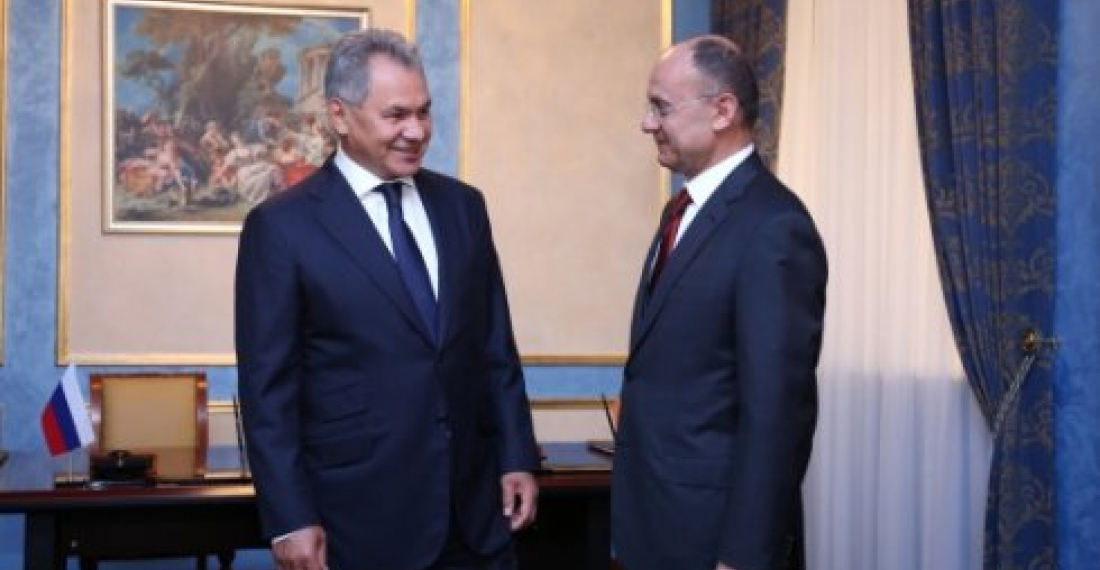Russian Defence Minister Sergei Shoigu, currently on a visit to the South Caucasus, on Tuesday met with Armenian Defence Minister Seyran Ohanyan, in the capital Yerevan. Shoigu arrived in Armenia yesterday after a short visit to Azerbaijan during which he met with President Ilham Aliev.
Later today Shoigu will participate in a meeting of Defence Ministers of the Collective Security Treaty Organisation (CSTO) taking place in the Armenian capital. Delegations from the defense ministries of Armenia, Belarus, Kazakhstan, Kyrgyzstan, Russia and Tajikistan, as well as the general secretary of the CSTO Nikolay Bordyuzha and chief of the joint general staff of the CSTO, Colonel-General Anatoli Sidorov, are expected to participate in the meeting.
Azerbaijan is not a member of the CSTO but in recent years has extensively increased its military co-operation with Russia.
source: commonspace.eu
photo; The Defence Ministers of Russia and Armenia at their meeting in Yerevan on 16 August 2016 (picture courtesy of the press service of the Defence Ministry of Armenia).






